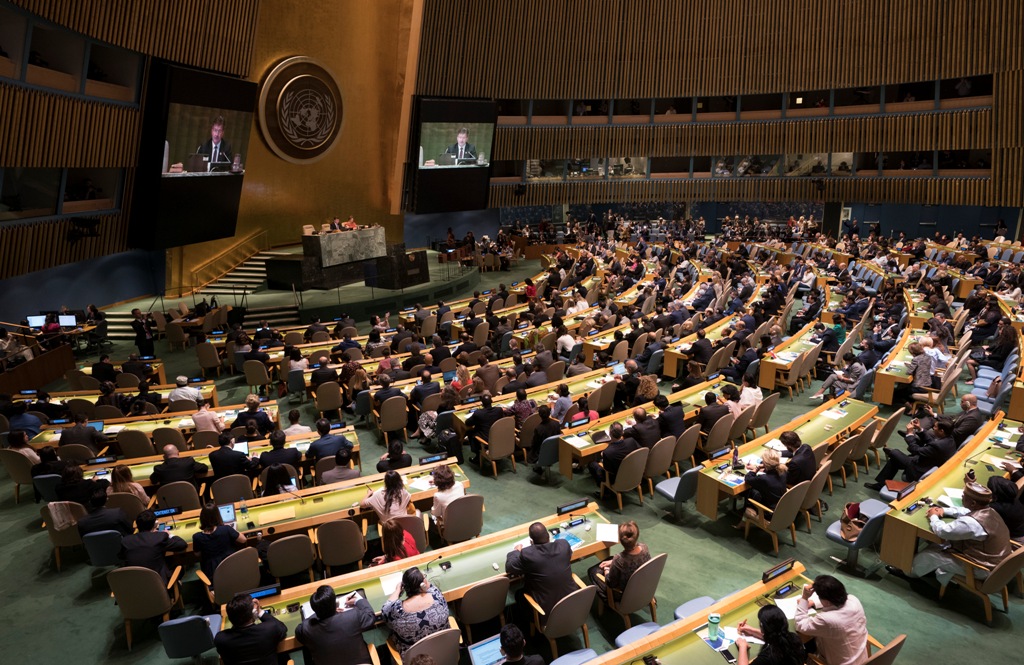
By agreeing in principle to give African countries two permanent seats in the United Nations Security Council, while at the same time denying the continent veto rights, the UN has effectively taken back with its left hand what it gives with its right hand. To say the least, that is uncomplimentary and demeaning of the African continent, and it certainly fails the test of an organisation that allows a level playing field for all its members.
Notably, Nigeria is leading African countries to push for debt forgiveness at the UN. However, African countries need to first imbibe a deep lesson that their survival and development do not depend on foreign aid and loans, but a reliance on self and indigenous resources to address their local problems and also confer dignity and self-respect to African countries.
Following President Bola Ahmed Tinubu’s request at the recently concluded 79th Session of the United Nations General Assembly (UNGA) held at the UN headquarters in New York, United States, the United Nations agreed that Nigeria and other African countries should be given two permanent seats on the powerful UN Security Council. The United States has also announced its support for the addition of two new permanent seats for African countries on the Security Council.
The UN Security Council, charged with maintaining international peace and security, has not changed its structure since 1945. Ten non-permanent members from various regions of the world are elected for two-year terms without veto power, while five countries—United States, United Kingdom, France, China, and Russia—remain permanent members with veto power, as they were dominant powers at the end of World War II.
Virtually all countries agree that nearly eight decades after the United Nations was established in the wake of World War II, the Security Council should be expanded to reflect the world of the 21st century and include more diverse voices. Africa currently holds three non-permanent seats on the Security Council. However, to date, no African country is a permanent member of the Security Council with veto rights. This is why both the United Nations and the United States are in support of creating two permanent seats for African countries on the Security Council.
However, the United States Ambassador to the UN, Linda Thomas-Greenfield, has clarified that the two permanent seats to be given to African countries would be without veto power, as Washington opposes giving veto power to the African countries holding these seats. She argues that the veto power would make the Security Council’s work “dysfunctional.”
Linda Thomas-Greenfield’s statement is insulting and disrespectful to African countries. The reservation of two permanent seats without veto falls short of reasonable expectations. After 80 years of operation, the United Nations Security Council is overdue for comprehensive reform—one that ensures a permanent seat for African countries with veto rights. Additionally, the international financial architecture should be reformed to promote an inclusive, non-discriminatory, and transparent international trading system, as well as the implementation of comprehensive debt relief measures.
The United Nations ought to be a meeting ground for equal sovereign countries. The impression should not be given that the United States is calling the shots at the United Nations or that African countries are relegated to subservient roles. Africa deserves the respect it is owed within the United Nations. The marginalisation of Africa within the UN is detrimental to maintaining international peace and security. In this respect, the African continent has come of age. It deserves a place in the permanent member category of the Security Council, with the same veto rights and responsibilities as other permanent members.
African countries should be seen as equal partners at the United Nations in comprehensive strategies for deepening world peace and security, and tackling transnational crime, illegal arms trafficking, and terrorism, particularly in the Sahel region. This is why African countries should be given permanent seats with veto rights on the Security Council. Additionally, the doctrine of inclusivity and non-discrimination dictates that African countries should have permanent seats with veto rights on the Security Council. This is not a privilege; it is mandated by equity and fairness.
Before world leaders began addressing the United Nations at the UN General Assembly, a two-day Summit of the Future was held, focusing on a Pact for the Future, a declaration on future generations, and a global digital compact. During the summit, UN Secretary-General António Guterres stated that it was “absolutely essential” to ambitiously use the summit to establish “adequate governance for the world of today.”
Subsequently, President Tinubu expressed hope that “the adoption of the Pact for the Future will change the narrative, reposition economies, and translate into concrete measures that provide solutions to the challenges faced by developing and least-developed countries.”
Nigeria and other African countries should be cautious not to cede their sovereignty to globalists aiming to establish a one-world government that seeks control over all nations. Therefore, Nigeria and other African countries must ensure their rights are affirmed and respected, allowing them to participate freely at the General Assembly without coercion to compromise their identity and cultural heritage.
To be continued tomorrow.






